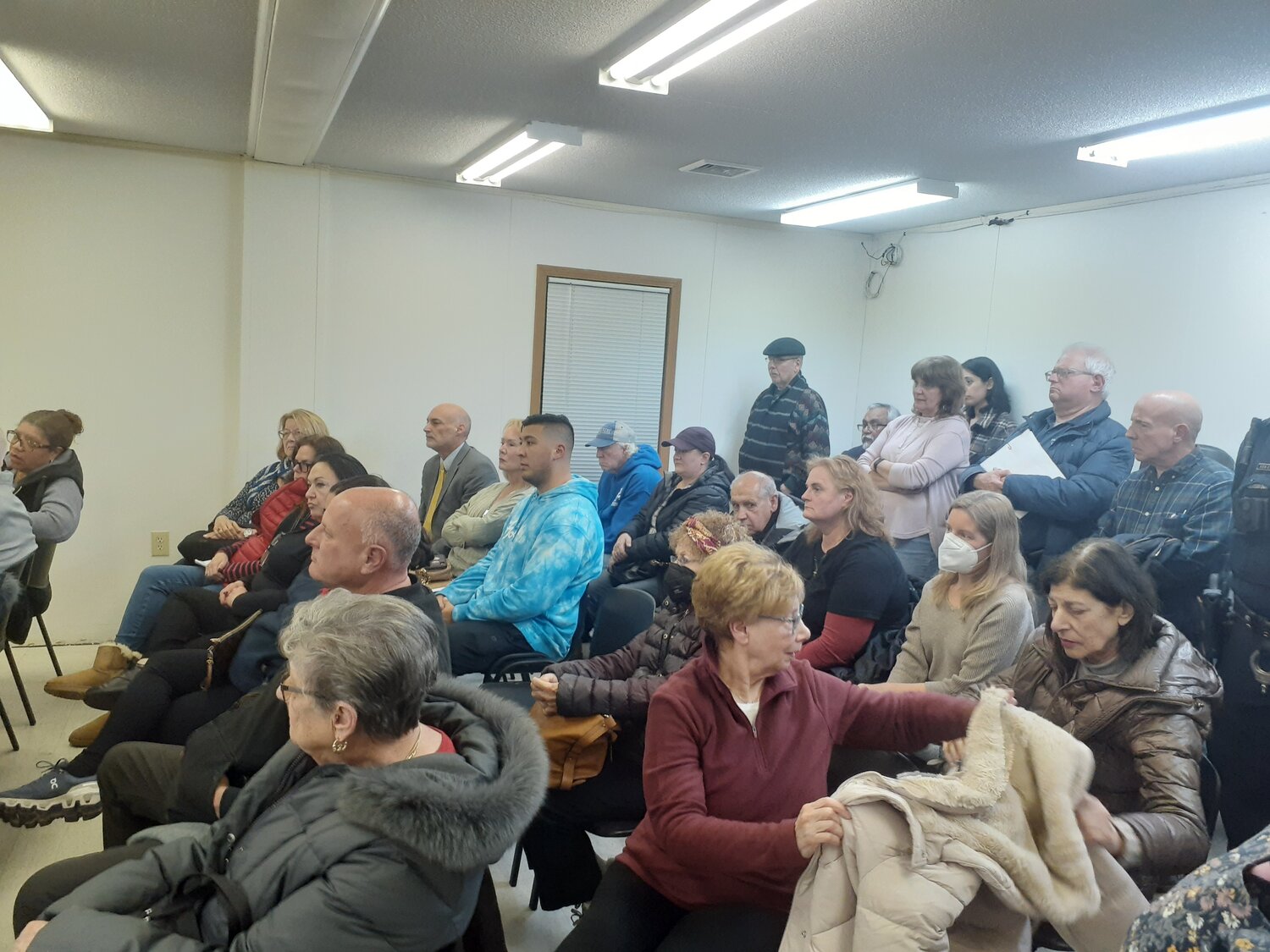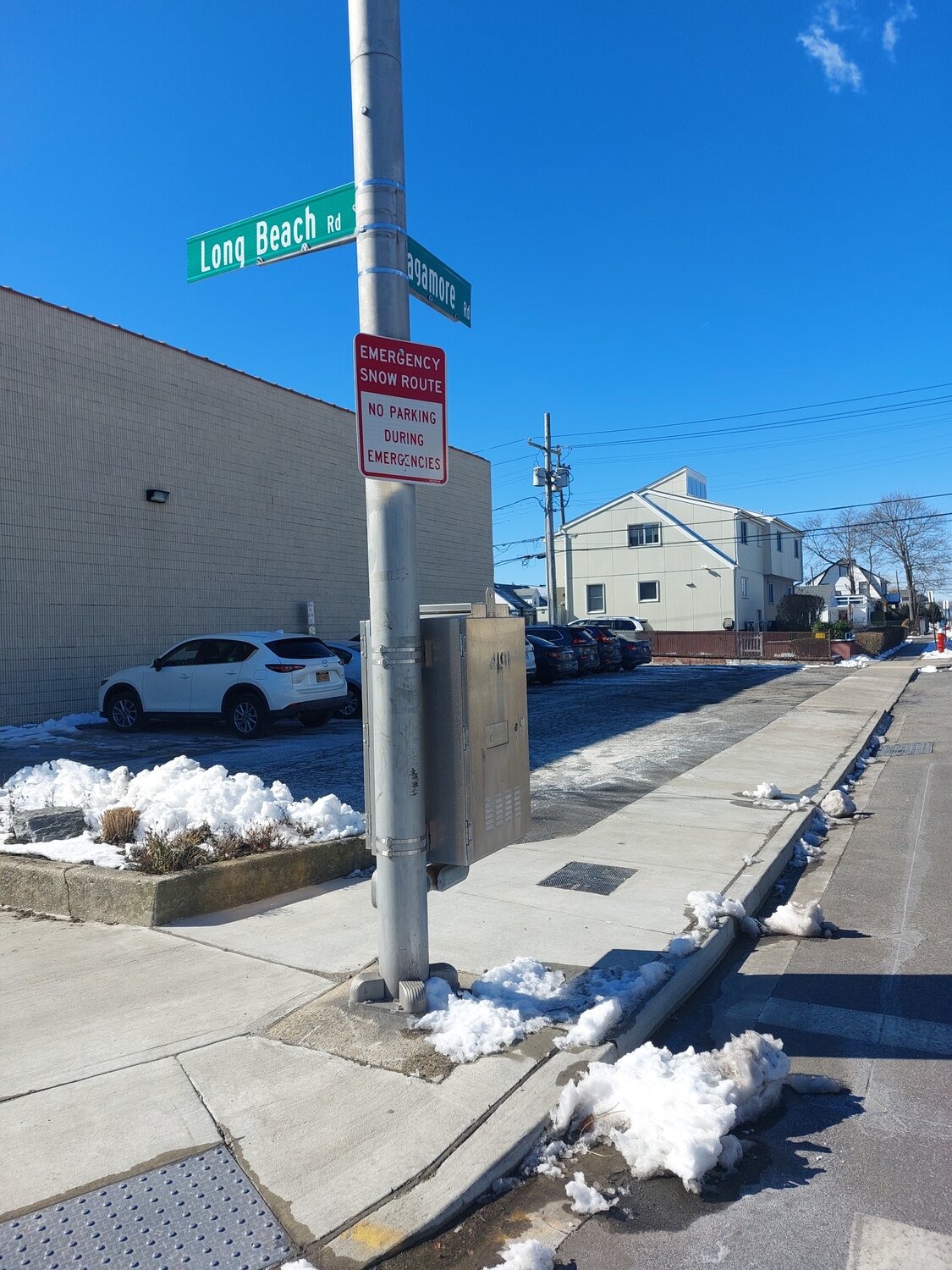ParkMobile woes plague Island Park
Residents and merchants blasted Island Park’s new electronic parking management system during a village board meeting last week, one charging that it’s “going to kill” local businesses.
ParkMobile, the village’s new parking system, became fully operational starting Feb. 1, and the initial reviews have been horrible.
Paying by using an app became mandatory in all village parking lots, from 7 a.m. to 6 p.m., Monday to Saturday.
Drivers were initially given a grace period while village officials worked on the system internally and rolled out the new parking plan, but as of Feb. 13, violations began to be enforced and tickets were handed out.
While parking is $1 an hour, residents also must pay a 45-cent surcharge when using credit cards through the app. For drivers who don’t own a Smartphone, a phone number is available for them to pay for parking. The Village projects an estimate to take in $50,000 to $100,00 in revenue from the new parking system. According to the village, $1,200 has been generated since the first week of implementation. As of press time, the total from fines has not yet been calculated.
Representatives from local businesses, including restaurants, florists and laundromats, as well as dozens of Island Park residents, packed the village courthouse during the Feb. 15 village board meeting, complaining that the system was hurting business and reporting a significant drop in customers and revenue since the system’s implementation.
“For the quick in and out, someone’s going to pay $1.45 for a five-minute park job to grab a slice of pizza and go home. I don’t think that’s fair,” Charles Natalello, of Jack’s Pizzeria, said. “They get to come in and grab a slice and pay on top of the slice.”
Residents, particularly seniors, expressed difficulty using the app-based parking system. Some were concerned about their technology skills and the inconvenience of using mobile apps for those who may not be familiar with Smartphone technology.
“I’m 60, I cannot do an app,” resident Christine Servidio said. “I don’t want to. I’d rather just go to the town hall and give 100 bucks a year, and let’s call it a day. This is an immediate problem that has to be compromised, but it can’t be a year from now.”
Baldwin resident Caroline Tocci, who works at Pop’s Wine & Spirits in Island Park, presented the village board with a petition bearing 931 signatures from merchants, employees and Island Park customers who are opposed to the new parking system.
“We’ve been here a long time,” Tocci said. “It’s tough here, and doing this is just making it harder and harder.”
Business owners urged village officials to provide more convenient access to work for their employees to address safety issues of traveling to designated lots late at night after work.
“People are not going to go to certain businesses if they have to pay to do it,” Glenn Ingoglia, representing the Island Park Chamber of Commerce, said. “This area was hit by Sandy 12 years ago, we went through Covid, now businesses are trying to get back on their feet then, and this is going to kill them.”
In January, village business owners and employees paid a $100 yearlong pass to park in merchant-designated village parking lots. Street parking on Long Beach Road is permitted free of charge, however, village officials said the 2-hour time limit is being strictly enforced.
“I’ve seen a constant drop in the customers who come for lunch,” Sanjay Jain, owner of DaVinci’s Restaurant and Lounge, said. “Ladies who come to play cards from Long Beach — they don’t come here anymore, and I have an absolutely empty restaurant during lunch hours. My employees don’t mind paying $100 for the whole year, but allow that ticket to be useful everywhere there is parking.”
Several residents pointed to the decrease in foot traffic and business revenue since the implementation of the new parking system and emphasized the importance of finding a solution that supports local businesses and encourages customers to visit Island Park.
“We are forcing people to leave the village and go to Oceanside, East Rockaway, and go to Long Beach,” resident Larry Chorne said. “On top of that, the residents of those three towns and cities are not going to come to Island Park when they can park for free in their own town.”
Island Park Mayor Mike McGinty also addressed inquiries about adding more traditional parking meters to accommodate older residents, but he said the cost of doing so would be prohibitive. Representatives from the South Shore Jewish Center raised concerns paying for parking on Saturdays, which conflicted with religious observances. McGinty assured that exceptions would be made for houses of worship on Saturday.
Concerns also were raised about the condition of the village’s parking lots.
“The pavement is all broken, and the lights are not working in Pop’s lot and the other lots,” Island Park resident Kathy Shannon said. “As an elderly citizen. I can’t walk in the door and trip into a pothole. If you want us to pay $1.45, fix the holes and turn on the lights.”
Residents urged the village board to reconsider the new parking system or to make some adjustments, citing its negative effects on businesses and residents. Suggestions included offering grace periods for quick retail and restaurant visits, providing more free or discounted parking options, allowing residents parking passes similar to merchants, and improving accessibility for the elderly.
McGinty informed residents that revenue generated from parking fees would be allocated towards maintenance and repair of parking infrastructure.
“I don’t think the effort to make this their revenue stream is plausible for the businesses. They have to find another option,” Mike Scully, acting chamber president, said. “I think it needs to be rescinded entirely.”
McGinty reiterated that the new program’s aim is to open additional revenue streams to address financial challenges, including borrowing at favorable rates and seeking recurring revenues to invest in community infrastructure.
“We go out into the marketplace for bond anticipation notes and serial bonds,” McGinty said. Bond anticipation notes and serial bonds are municipal bonds, issued by local governments to raise funds for various projects or capital expenditures. “I’ve had to speak to the Oppenheimer’s of the world, JP Morgan, Chase. We have to find recurring revenue. We thought this might work, and we have a lot of work to do, but they don’t want to hear that we’re collecting property taxes. They want to hear that we’re looking for other income streams so they can invest in us. It’s an ongoing project, and there are so many things that we will try to look at.”
In response to the mounting outcry, McGinty and village trustee Robert Tice assured that community concerns were being taken seriously and pledged to work towards improving the pilot project, acknowledging the need for flexibility and understanding amidst the challenges faced by residents and businesses.
“We’re trying to work with the merchants and their employees,” Tice said. “We don’t have an answer for every situation, but we are trying to tweak, and we are trying to make it better.”

 44.0°,
Mostly Cloudy
44.0°,
Mostly Cloudy 











